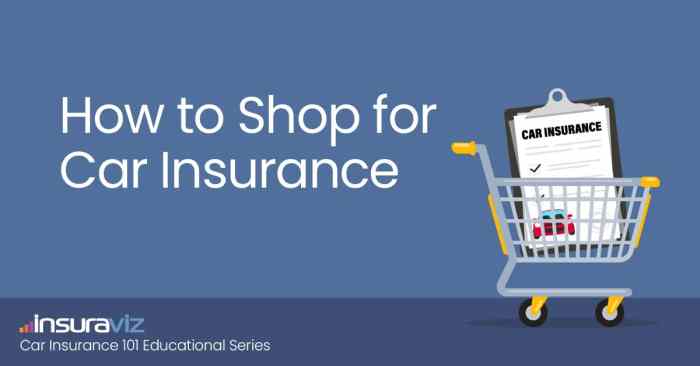Exploring the world of car insurance quotes can be both daunting and essential. This guide delves into the intricacies of finding the best deals and making informed decisions to protect your vehicle and finances.
As we navigate through the details, you'll uncover valuable insights on factors influencing insurance rates, smart comparison strategies, and leveraging technology to simplify the process. Let's embark on this enlightening journey together.
Introduction to Car Insurance Quotes
When you're in the market for car insurance, one of the first things you'll encounter are car insurance quotes. These are estimates of how much you'll pay for coverage based on various factors.
It's crucial to compare car insurance quotes from different providers before making a decision. Not only can prices vary significantly, but the level of coverage and benefits offered can also differ greatly.
Factors Affecting Car Insurance Quotes
- Your age: Younger drivers typically pay more for car insurance due to their lack of driving experience.
- Your location: Where you live can impact your insurance rates, with urban areas often having higher premiums.
- Your driving history: If you have a clean driving record, you may qualify for lower rates compared to someone with a history of accidents or traffic violations.
Factors to Consider When Shopping for Car Insurance Quotes

When shopping for car insurance quotes, there are several key factors that can impact the rates you are quoted. Understanding these factors can help you make informed decisions and find the best coverage for your needs.
Types of Coverage, Deductibles, and Discounts
When comparing car insurance quotes, it's important to consider the types of coverage offered, the deductibles you will have to pay, and any discounts that may be available. Comprehensive coverage, collision coverage, liability coverage, and uninsured/underinsured motorist coverage are some common types of coverage to consider.
Higher deductibles can lower your premiums but will require you to pay more out of pocket in the event of a claim. Discounts for safe driving, bundling policies, and having certain safety features on your vehicle can help lower your overall costs.
Personal Factors Impacting Insurance Quotes
Personal factors such as your age, driving record, and credit score can also play a significant role in determining your car insurance quotes. Younger drivers and those with a history of accidents or traffic violations may face higher premiums. Additionally, insurance companies often consider credit scores when calculating rates, as those with higher credit scores are seen as less risky to insure.
Vehicle Make, Model, and Year
The make, model, and year of your vehicle can also affect your car insurance rates. Newer, more expensive cars may be more costly to insure due to the higher cost of repairs or replacements. Additionally, certain makes and models may be more prone to theft or have higher repair costs, leading to higher insurance premiums.
Older cars with lower values may be cheaper to insure, as the cost of repairs or replacements is typically lower.
How to Smartly Compare Car Insurance Quotes

When shopping for car insurance, comparing quotes from different insurers is crucial to finding the best coverage at the most competitive rates. Here are the steps to smartly compare car insurance quotes:
Gather Multiple Quotes from Different Insurers
Start by researching and obtaining quotes from various insurance companies. You can request quotes online, over the phone, or through an agent. Make sure to provide accurate information about your driving history, vehicle, and coverage needs to get the most precise quotes.
Compare Coverage Limits and Deductibles
Once you have gathered multiple quotes, carefully compare the coverage limits and deductibles offered by each insurer. Consider the types of coverage included, such as liability, collision, comprehensive, and uninsured/underinsured motorist coverage. Look for any variations in coverage limits and deductibles that may affect your out-of-pocket expenses in the event of a claim.
Review Customer Reviews and Ratings
Before making a decision, take the time to research customer reviews and ratings for the insurance companies you are considering. Look for feedback on customer service, claims processing, and overall satisfaction. Choosing an insurer with positive reviews can give you peace of mind knowing that you are in good hands.
Understanding Coverage Options
When it comes to car insurance, understanding the different coverage options available is crucial in ensuring you have the right protection in place. Here, we will discuss the types of coverage available, compare their benefits and drawbacks, and share tips on customizing coverage based on individual needs and budget.
Types of Coverage
- Liability Coverage: This type of coverage helps pay for damages and injuries you cause to others in an accident. It is typically required by law in most states.
- Collision Coverage: This coverage helps pay for repairs to your own vehicle in case of a collision with another vehicle or object.
- Comprehensive Coverage: Comprehensive coverage helps pay for damages to your vehicle that are not caused by a collision, such as theft, vandalism, or natural disasters.
- Uninsured Motorist Coverage: This coverage protects you if you are in an accident with a driver who does not have insurance or has inadequate coverage.
Benefits and Drawbacks
- Liability Coverage: Benefits include meeting legal requirements and protecting your assets. Drawbacks may include limited coverage for your own vehicle.
- Collision Coverage: Benefits include coverage for repairs to your vehicle after a collision. Drawbacks may include higher premiums.
- Comprehensive Coverage: Benefits include coverage for a wide range of non-collision damages. Drawbacks may include higher premiums and deductibles.
- Uninsured Motorist Coverage: Benefits include protection against uninsured drivers. Drawbacks may include added cost to your policy.
Tips for Customizing Coverage
When customizing your coverage, consider factors such as your vehicle's value, your driving habits, and your budget. You can adjust coverage limits, deductibles, and add-ons to suit your individual needs. It's important to strike a balance between adequate coverage and affordability.
Utilizing Technology for Shopping Car Insurance Quotes
With the advancement of technology, shopping for car insurance quotes has become more convenient and efficient. Utilizing online tools and apps can streamline the process, providing you with instant quotes and helping you make informed decisions.
Online Comparison Tools
Online comparison tools have revolutionized the way we shop for car insurance. These platforms allow you to input your information once and receive multiple quotes from different insurance providers, saving you time and effort.
- By using online comparison tools, you can easily compare prices, coverage options, and discounts offered by various insurance companies.
- These tools provide a side-by-side comparison of the quotes, making it easier for you to identify the best option that fits your needs and budget.
- Additionally, online comparison tools often provide customer reviews and ratings, giving you insights into the reputation and customer service of each insurance provider.
Instant Quotes through Apps and Websites
Apps and websites offered by insurance companies allow you to get instant quotes without the need to visit multiple websites or make phone calls. This convenience enables you to gather information quickly and make decisions on the go.
- With just a few clicks on your smartphone or computer, you can input your details and receive personalized quotes in a matter of minutes.
- Instant quotes through apps and websites provide transparency and clarity, helping you understand the cost breakdown and coverage details upfront.
- Some apps even offer features like virtual assistance and chat support, allowing you to ask questions and get real-time help during the quote comparison process.
Traditional Methods vs. Modern Technological Solutions
Comparing traditional methods of obtaining car insurance quotes with modern technological solutions highlights the efficiency and benefits of using online tools and apps.
| Traditional Methods | Modern Technological Solutions |
|---|---|
| Visiting multiple insurance offices or calling agents for quotes | Using online comparison tools to receive multiple quotes at once |
| Manually calculating costs and coverage options | Getting instant quotes through apps and websites with detailed breakdowns |
| Reliance on paper documents and lengthy paperwork | Digital platforms offering e-signatures and online policy management |
Ultimate Conclusion
In conclusion, mastering the art of shopping for car insurance quotes the smart way is key to securing optimal coverage at the best price. By understanding the nuances of insurance quotes and utilizing the right tools, you can make well-informed choices that align with your needs and budget.
Start your journey to smarter car insurance shopping today.
Expert Answers
How do I know which coverage types are essential for my car insurance?
It's crucial to assess your needs and risks to determine the coverage types that are necessary. Factors like your vehicle's value, your driving habits, and financial situation play a significant role in this decision-making process.
Can my credit score really impact the quotes I receive for car insurance?
Yes, insurance companies often consider credit scores when calculating premiums. A higher credit score can sometimes lead to lower insurance rates, as it may indicate financial responsibility and lower risk for the insurer.
Is it advisable to solely rely on online comparison tools for car insurance shopping?
While online comparison tools can be incredibly helpful, it's recommended to complement them with personal research and inquiries. Speaking directly with insurance agents or representatives can provide additional insights and tailored recommendations.










